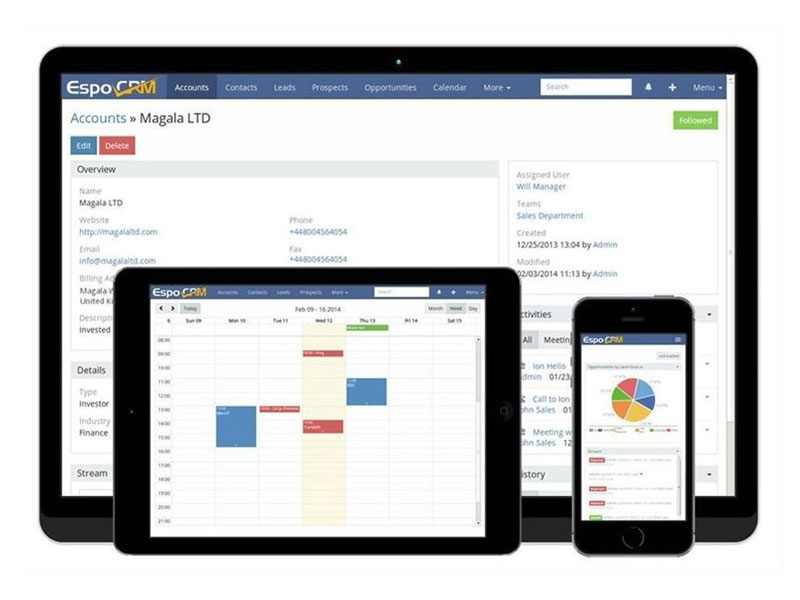• Epesi: It is a free CRM application for Windows, Linux, macOS or iOS. It is developed in PHP / Ajax and is available in 30 different languages.
• EspoCRM: It has its own hosting and there is a free version and another paid one with better features. It is distributed under the GPLv3 license.
• SuiteCRM: One of the successors of SugarCRM, it began to be developed after its disappearance and now the project is quite mature.
• vTiger CRM: It also emerged as a fork of SugarCRM and in addition to the free version there are several packages and suites with CRM and other advanced functionalities.
• OdooCRM: It includes useful tools such as the agenda, reports generation… Its community of users collaborate actively in its development and offer their help to those who need it.
• Fat Free CRM: Based on the Ruby programming language and the RoR framework (Ruby On Rails) is a very powerful tool that is also very simple to use.
These are not the only Open Source CRM that exist today, there are many other options that can be assessed before deciding the tool to be implemented in the company. They are as good as the proprietary solutions and allow to enjoy the flexibility and freedom offered by Open Source software.








0 Comments